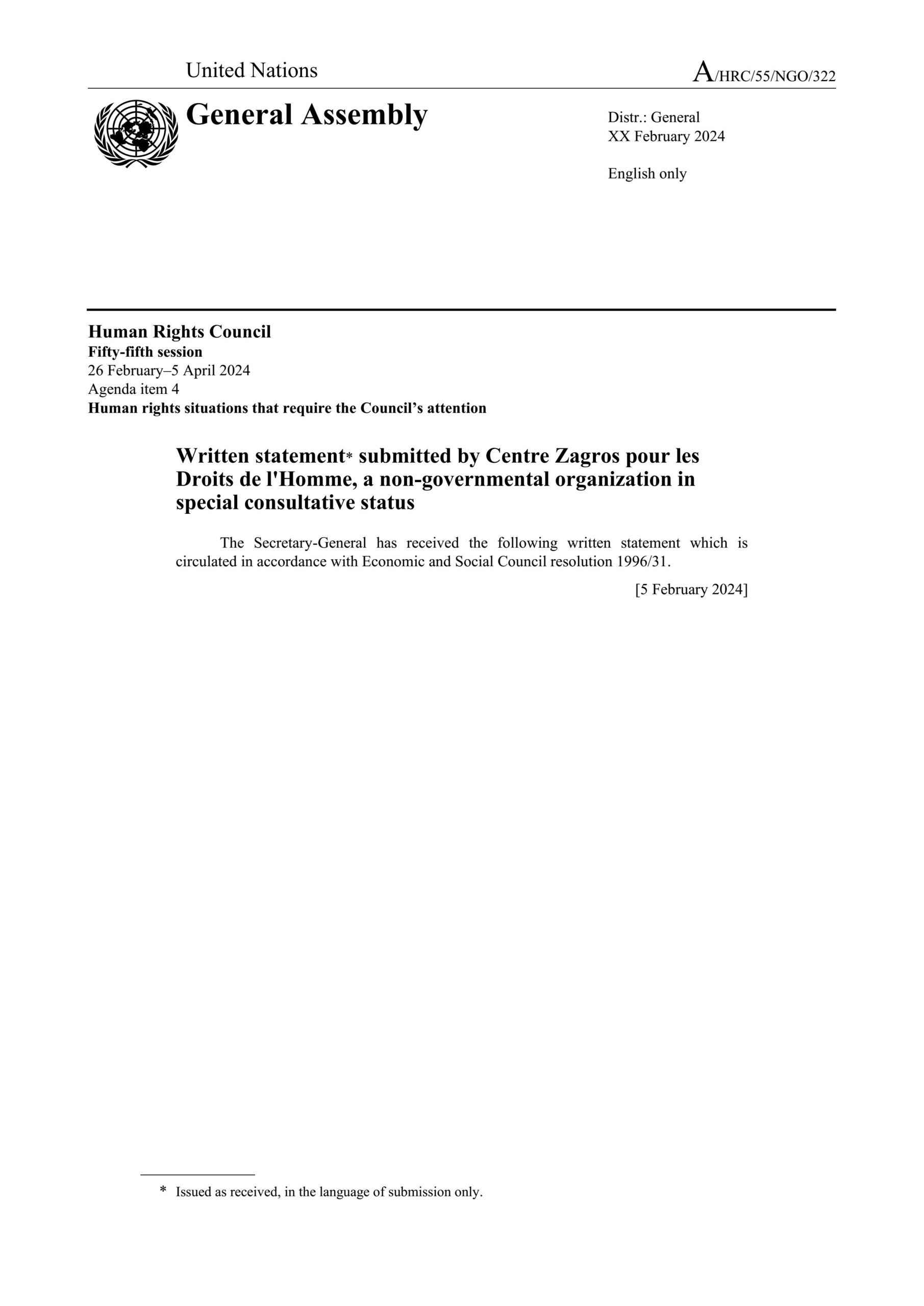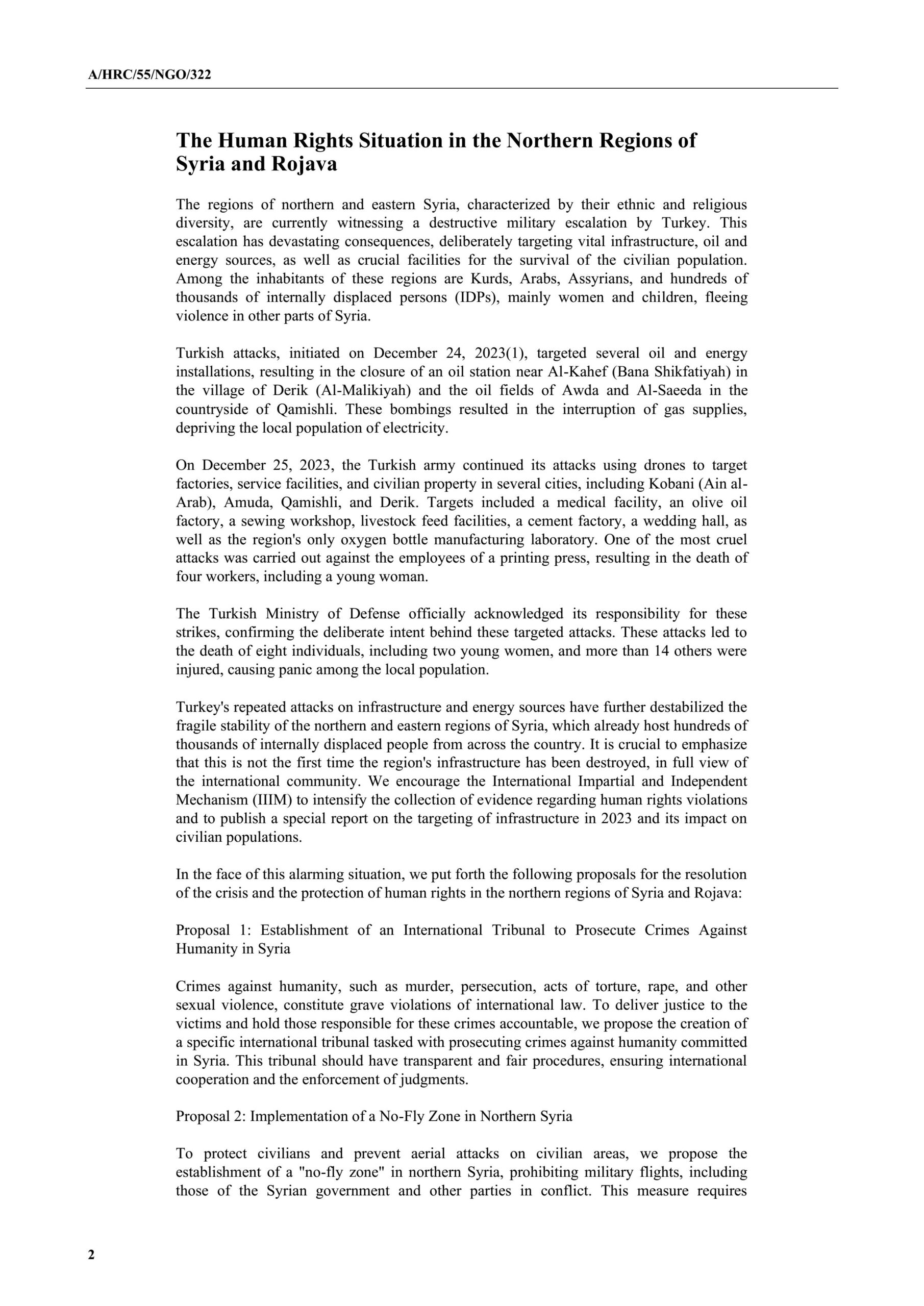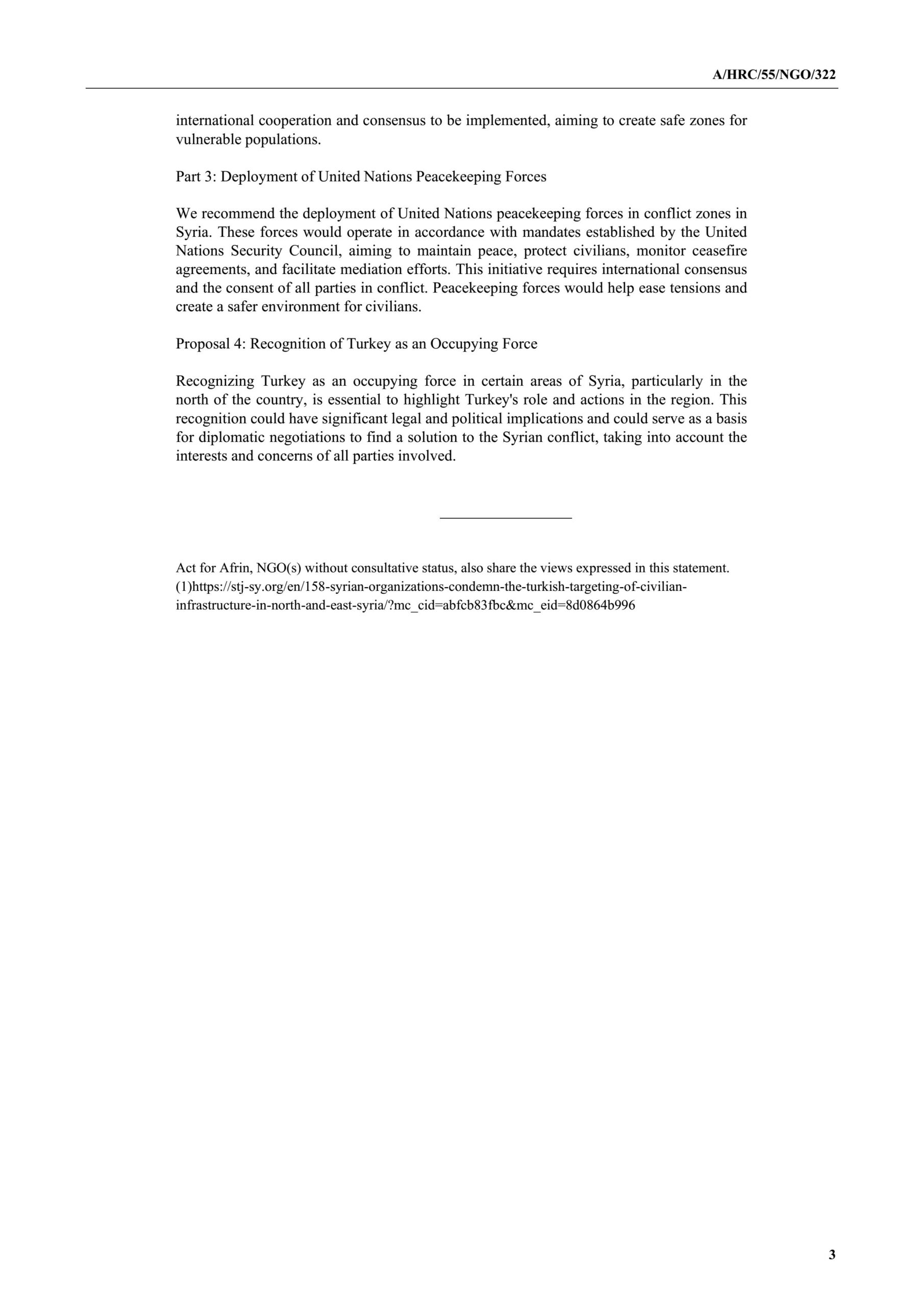The regions of northern and eastern Syria, characterized by their ethnic and religious diversity, are currently witnessing a destructive military escalation by Turkey. This escalation has devastating consequences, deliberately targeting vital infrastructure, oil and energy sources, as well as crucial facilities for the survival of the civilian population. Among the inhabitants of these regions are Kurds, Arabs, Assyrians, and hundreds of thousands of internally displaced persons (IDPs), mainly women and children, fleeing violence in other parts of Syria.
Turkish attacks, initiated on December 24, 2023(1), targeted several oil and energy installations, resulting in the closure of an oil station near Al-Kahef (Bana Shikfatiyah) in the village of Derik (Al-Malikiyah) and the oil fields of Awda and Al-Saeeda in the countryside of Qamishli. These bombings resulted in the interruption of gas supplies, depriving the local population of electricity.
On December 25, 2023, the Turkish army continued its attacks using drones to target factories, service facilities, and civilian property in several cities, including Kobani (Ain al-Arab), Amuda, Qamishli, and Derik. Targets included a medical facility, an olive oil factory, a sewing workshop, livestock feed facilities, a cement factory, a wedding hall, as well as the region’s only oxygen bottle manufacturing laboratory. One of the most cruel attacks was carried out against the employees of a printing press, resulting in the death of four workers, including a young woman.
The Turkish Ministry of Defense officially acknowledged its responsibility for these strikes, confirming the deliberate intent behind these targeted attacks. These attacks led to the death of eight individuals, including two young women, and more than 14 others were injured, causing panic among the local population.
Turkey’s repeated attacks on infrastructure and energy sources have further destabilized the fragile stability of the northern and eastern regions of Syria, which already host hundreds of thousands of internally displaced people from across the country. It is crucial to emphasize that this is not the first time the region’s infrastructure has been destroyed, in full view of the international community. We encourage the International Impartial and Independent Mechanism (IIIM) to intensify the collection of evidence regarding human rights violations and to publish a special report on the targeting of infrastructure in 2023 and its impact on civilian populations.
In the face of this alarming situation, we put forth the following proposals for the resolution of the crisis and the protection of human rights in the northern regions of Syria and Rojava:
Proposal 1: Establishment of an International Tribunal to Prosecute Crimes Against Humanity in Syria
Crimes against humanity, such as murder, persecution, acts of torture, rape, and other sexual violence, constitute grave violations of international law. To deliver justice to the victims and hold those responsible for these crimes accountable, we propose the creation of a specific international tribunal tasked with prosecuting crimes against humanity committed in Syria. This tribunal should have transparent and fair procedures, ensuring international cooperation and the enforcement of judgments.
Proposal 2: Implementation of a No-Fly Zone in Northern Syria
To protect civilians and prevent aerial attacks on civilian areas, we propose the establishment of a “no-fly zone” in northern Syria, prohibiting military flights, including those of the Syrian government and other parties in conflict. This measure requires international cooperation and consensus to be implemented, aiming to create safe zones for vulnerable populations.
Part 3: Deployment of United Nations Peacekeeping Forces
We recommend the deployment of United Nations peacekeeping forces in conflict zones in Syria. These forces would operate in accordance with mandates established by the United Nations Security Council, aiming to maintain peace, protect civilians, monitor ceasefire agreements, and facilitate mediation efforts. This initiative requires international consensus and the consent of all parties in conflict. Peacekeeping forces would help ease tensions and create a safer environment for civilians.
Proposal 4: Recognition of Turkey as an Occupying Force
Recognizing Turkey as an occupying force in certain areas of Syria, particularly in the north of the country, is essential to highlight Turkey’s role and actions in the region. This recognition could have significant legal and political implications and could serve as a basis for diplomatic negotiations to find a solution to the Syrian conflict, taking into account the interests and concerns of all parties involved.
Act for Afrin, NGO(s) without consultative status, also share the views expressed in this statement.
(1)https://stj-sy.org/en/158-syrian-organizations-condemn-the-turkish-targeting-of-civilian-infrastructure-in-north-and-east-syria/?mc_cid=abfcb83fbc&mc_eid=8d0864b996



